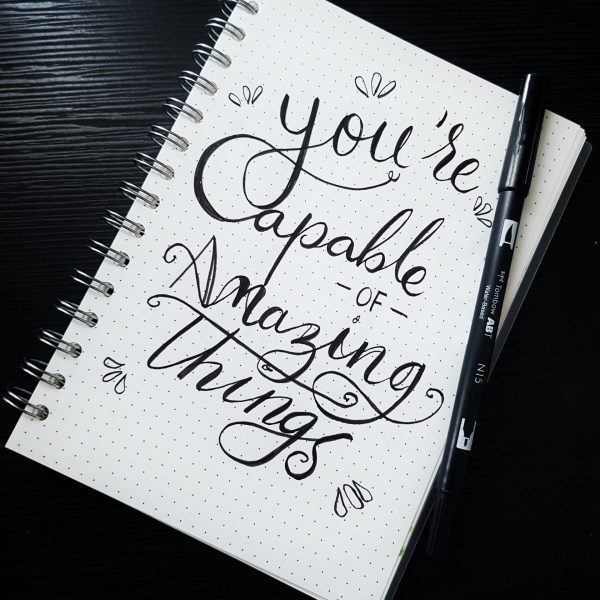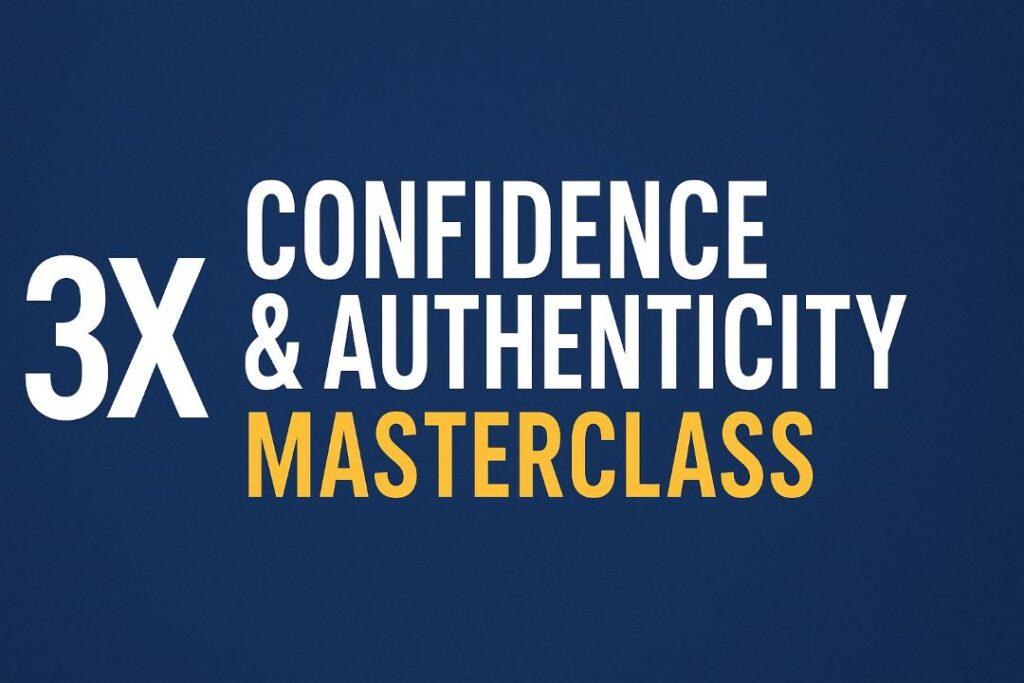Lofty Questions To Build Self-Confidence And Self-Esteem: A Little-Known Technique

Using lofty questions to build self-confidence and self-esteem is a little-known technique that can also help you achieve greater success in life by changing your mindset. When left unchecked, a lack of self-confidence and low self-esteem can lead you to underperform when trying to achieve your goals.
Lack of confidence can lead to impulsive decisions that may not be well-considered or suitable for the situation. People with low self-esteem also tend to procrastinate, make mistakes when faced with tasks they feel they should be able to accomplish relatively quickly, and engage in negative self-talk. Being confident improves many areas of your life, including relationships and career success.
Self-confidence, like a muscle, requires time to develop. The key is getting “started” on building your own muscle strength to accomplish things you never thought possible before and become more confident in your abilities.
While there are many ways to improve your self-esteem and self-confidence, this post will share with you a little-known technique, lofty questions, that we at Mindset Transformation also use, made known by Mindvalley, a well-known personal growth educational institution. But let me first explain why it is important to build self-confidence and self-esteem.
Table of Contents
Why Self-Confidence Is Important And How It Is Related To Self-Esteem
Self-confidence is essential because it allows you to feel positive about yourself and your abilities. When you have self-confidence, you are more likely to take risks and try new things, which can lead to success. Self-confidence is also related to self-esteem, which is how you feel about yourself. You are more likely to be confident in your abilities if you have high self-esteem.
What’s the difference between self-esteem and self-confidence? Self-confidence is a feeling of self-worth usually associated with an overall sense of feeling good about yourself, your abilities, and your achievements. Self-esteem is linked to self-confidence and measures how much you like and value yourself. For example, low self-esteem makes you think and feel bad about yourself.
Although people often use the terms self-esteem and self-confidence interchangeably, they are not exactly the same. Your sense of self-worth grows and changes as you go through life and interact with other people. Self-confidence means having faith in yourself and how you interact with the world, which can be different depending on what’s happening in your life. To be confident is thus the ability to look upon yourself with a level of self-esteem that is different from arrogance, which is a form of insecurity.
The Different Types Of Self-Confidence
Lack of confidence is a difficult feeling to explain. The word has been used so much in modern marketing and business that it has lost its original meaning, leaving us to think of a vague feeling of strength and satisfaction. With that being said, there are many different types of confidence:
1. Self-Confidence: Self-confidence is the feeling you get when you believe in yourself or feel like you are doing something right or good for yourself or others.
2. Self-Esteem: People have high self-esteem (also called self-worth) because they feel good about themselves and think they are good people who deserve good treatment from others. One can say that self-esteem is the result of having self-confidence.
3. Social Confidence: Social confidence is when you feel like you do not need to show certain behaviours to be accepted by others.
4. Life Confidence: Life confidence is when you feel confident concerning life situations daily, such as how you will get along with your parents/spouse if they move out of the house/how optimistic you are about your future goals and life aspirations, etcetera. This self-confidence is often linked to a positive outlook, but it can also make some people worry about their safety or well-being, leading to uncertainty about their lives.
5. Personal Confidence: Personal confidence is related to self-esteem and social confidence. Still, it differs significantly from the other two types. Personal confidence is based on your personal feelings towards yourself and the world around you. This type of self-confidence may also lead people into various forms of negativity, such as depression. Multiple studies have found that personal confidence affects health negatively.
There are studies claiming that having confidence helps reduce anxiety and improves overall mental health. But there is still work to be done to fully understand whether or not personal confidence does affect mental health and physical health positively. As humans, we’re a little too comfortable with being in control. We’re afraid to let go of that control and let somebody else have power over our lives. But you can drop that control and be more confident in yourself.
Becoming more confident doesn’t happen overnight; it takes time to develop. But once it does, the results are incredible.
More importantly, confidence is an attitude we can all have, no matter your age or social status. No matter how unglamorous it may seem at first glance, everyone can feel confident in themselves and capable of accomplishing great things.
Self-confidence is not something you are born with. Instead, it is a mindset you can build up over time through consistent positive reinforcement and repetition of positive self-talk. Also, confidence comes from knowledge, practice and a sense of identity.
While there are different ways to develop self-confidence, asking lofty questions is a little-known technique that can help you change your mindset about yourself and boost your confidence. If you lack confidence and need a quick boost, lofty questions will be the perfect tool to build your self-confidence and self-esteem and to help you feel better about yourself.
What Is A Lofty Question?
What is a lofty question? In writing and rhetoric, a “lofty” question is one that is broad, open-ended, and philosophical. They’re questions that are more about the process of thinking than about the answers. A lofty question is one that is grand or ambitious in scope. It is a question that requires deep thought and reflection and often raises more questions than answers. Lofty questions are often open-ended and can be difficult to answer definitively.
They are the kind of questions that provoke wonder, inspire awe, and challenge your assumptions about the world. Lofty questions will prompt you to think about your values, your philosophy of life, and your own past experiences.
A lofty question is an open-ended question that stimulates thought, unlike a yes/no or a “how do you feel about…” query. These questions may help you contemplate issues that bother you, like being more confident and feeling better.
Some reflection will also help you get rid of negative thoughts. Phrase the lofty question to reflect what you want to achieve in life and which is the opposite of what you are currently experiencing. When phrased correctly, these questions will boost your confidence in no time.
Using Lofty Questions To Build Self-Confidence And Self-Esteem
Lofty questions to build self-confidence and self-esteem are helpful because they help change your behaviour and reframe what you think about yourself and how you perceive yourself.
By asking lofty questions, you’re encouraging yourself to think differently, to change your behaviour, and to feel less bad about yourself. Your subconscious mind always wants to answer questions, and by asking lofty questions, your behaviour changes to answer the questions.
Lofty questions help improve your self-image and low self-confidence. Asking lofty questions is one of the best ways to understand what needs changing in your thinking and behaviour. It is really as simple as that.
Helpful Lofty Questions To Build Your Self-Confidence And Self-Esteem
Are you ready to boost your self-esteem and build your confidence? Repeat the following lofty questions as often as possible:
- Why am I always enough?
- Why do I always feel great about who I am?
- Why am I always blessed?
- Why do I love myself more each day?
- Why do I always forgive myself?
- Why do I always do my best each day?
- Why am I always loved?
- Why am I always at peace with myself?
Self-Confidence
- Why am I always confident in any situation?
- Why am I always competent?
- Why do I always become more and more confident each day?
- Why do I always get better and better?
- Why do I always believe in myself?
- Why am I always able to figure out anything?
- Why am I always speaking confidently in front of other people?
Start using lofty questions to build your self-confidence and self-esteem by saying them daily and you will notice how your behaviour starts to change.
Use Lofty Questions For Your 7-Day Challenge
You can change your mindset in seven days with this 7-day challenge using lofty questions.
This book is the perfect guide for anyone who is looking to make a positive change in their life and become a better version of themselves. It will help you reset your mindset and open up the possibilities of achieving your dreams, no matter who you are or where you are in life.
The book includes practical tips and a set of lofty questions to help you get into the right mindset for the day, reframe how you think about an issue, and make meaningful changes in various areas of your life. To get the most out of the book, you are given a 7-day challenge to improve your mindset about self-esteem, confidence, positivity, money, health, abundance, and gratitude.
Along with the book, you will also receive a bonus book to help you become a better version of yourself by guiding you to change your habits (download link in the book). So, take the leap and become a stronger person today with this book.
Continue Reading
- How to Deal with Unexpected Situations: When Life Throws You a Curveball
- How Mindset Quotes Can Change the Way You Think
- Stop Absorbing Others’ Feelings And Acting As An Emotional Sponge
- Use The Third Chair Technique To Gain Clarity
- Forgive Yourself: A Guide to Healing and Inner Peace


Leave a Comment